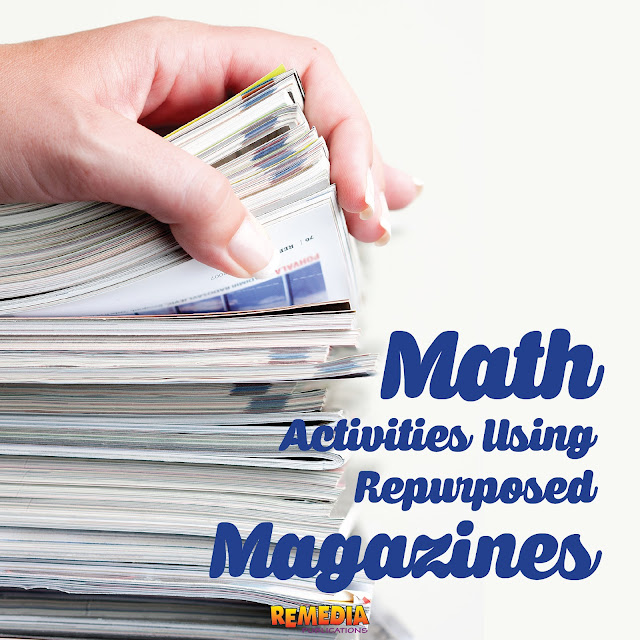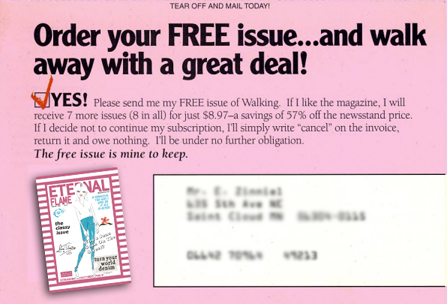Before you toss your TV Guide, People, or Every Day with Rachael Ray in the recycle bin, read these tips for repurposing old magazines. That pile of magazines has great activities to support your math lessons!
Magazine Math
-
- Have students cut colorful pictures from magazines and paste them onto a piece of construction paper use this template <free download>. Underneath the collage of magazine clippings have students write a math word problem related to the picture they’ve created. Have students carefully proofread their work for errors. Also have them answer the word problem and write the answer on the back of the activity. Then have students share their word problem with a classmate to solve. Post the colorful word problems on your bulletin board for an eye-catching math board.
- Go on a magazine scavenger hunt! You can modify this concept for any subject, but for the sake of math related activities, focus on your current lesson plan. For example, have students find: a line longer than two inches, a number in words, a percent, a pie chart, a bar graph, a date, a cylinder, a right angle, and so on. Instruct students to find an example of each in a magazine, cut out the example, and glue them to a piece of construction paper. This would also make for a colorful math bulletin board!
- Start clipping and saving the recipes printed in magazines for your next fractions lesson. Provide each student with a recipe. Challenge students to double, triple, or cut the recipe in half. For a hands-on approach, give students only three measuring cups, for example: ½ teaspoon, ½ tablespoon, and ¼ cup. Have students determine how to make the recipe with just those measuring tools. If the recipe calls for 3 cups of flour, how many ¼ cups will you need?
- Have students cut colorful pictures from magazines and paste them onto a piece of construction paper use this template <free download>. Underneath the collage of magazine clippings have students write a math word problem related to the picture they’ve created. Have students carefully proofread their work for errors. Also have them answer the word problem and write the answer on the back of the activity. Then have students share their word problem with a classmate to solve. Post the colorful word problems on your bulletin board for an eye-catching math board.
-
- Local city magazines are typically free and easy to find, plus they are always packed coupons to local restaurants. Provide each student with a coupon and ask them to identify how much they must spend in order to redeem the coupon and if they spend x amount of money, how much will they save by using the coupon? To give students a hands-on experience, give each student different amounts of play money. Have them deduct the coupon’s discount amount from their stack to see what 10% looks like versus deducting $10.Real estate advertisements are also common in local magazines. These advertisements often market a square foot price (i.e. $0.50/sf). Ask students to determine how much a building would cost of if the square footage was 7,000 sf. Or if the square foot price and the total price are listed, ask students to determine the size (sf) of the building.
-
- Save the postcard-size blow-ins that sell magazine subscriptions. See example below. Give each student a postcard. Ask students to find, or determine using math, the following information from the postcard: magazine name, regular subscription price, single magazine price, number of issues, and special subscription price. Have students determine the savings per issue, the price per issue with savings, the annual price of the in-store magazine versus the subscription price, etc.










